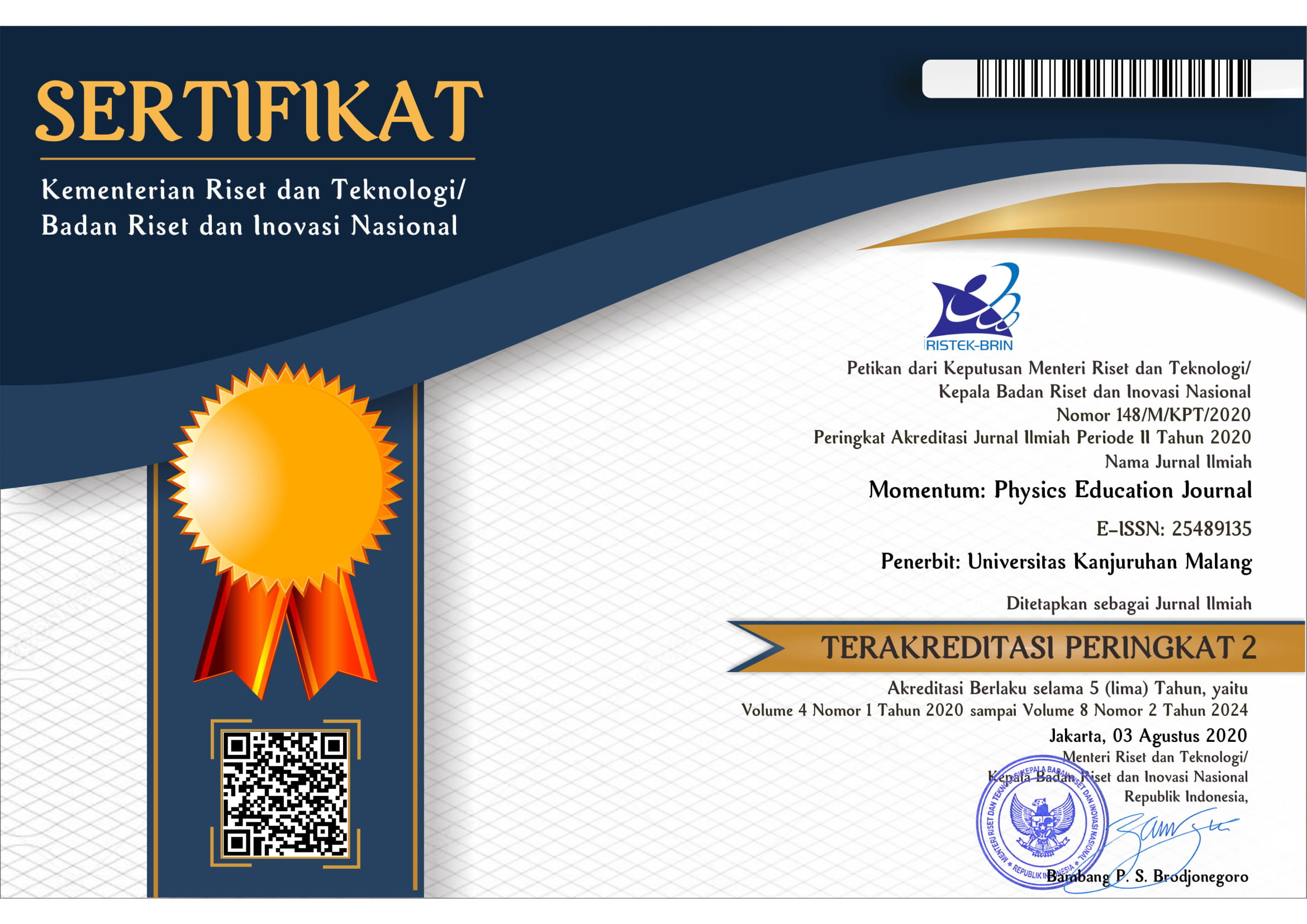Design and development EduPocket A+
DOI:
https://doi.org/10.21067/mpej.v5i1.5700Keywords:
21st century learning (PAK-21), Apps EduPocketA, student-centeredAbstract
The objective of Science, Technology, and Engineering Mathematics (STEM), is not only focused on scientific knowledge and concepts but 21st century skills such as collaborative skills, communication, critical thinking, creativity and computational thinking should be emphasized in science learning. This concept paper discusses how to develop the EduPocket A+ and this application features easy-to-grasp notes and animations to present the Physics syllabus in a simple manner. EduPocket A+ is an (Android APK) application where individuals are able to access notes) through interactive means as well as prep individuals to answer essay questions for the SPM Physics Paper 2. A review of the literature shows that educational games can improve student academic achievement. In addition, this learning approaches provide a fun learning environment, increasing active engagement students in learning, and increase students ’interest and motivation in STEM education. However, studies on game-based learning involving students as educational games designers or inventors are still lacking in Malaysia, especially at the secondary school. Furthermore, relatively little research has focused on the development of Edu-PocketA+ as effectiveness of educational games mastery of 21st century skills in STEM. Therefore, this concept paper discusses the development of EduPocketA+ that involving students in making games in learning, facilitating strategies in physics learning concepts and improve 21st century skills among students.
Downloads
References
Arip, M. A. S. B. M., Sa’ad, F. B. M., Jaapar, N. B., Ali, K. B. M., Athdzar, N. H. B., & Rashid, W. N. B. W. A. (2014). Faktor, kesan dan strategi menangani permasalahan kurang tumpuan pelajar sekolah menengah di dalam kelas: suatu kajian kualitatif. International Counseling Conference and Work.
Behnamnia, N., Kamsin, A., & Ismail, M. A. B. (2020). The landscape of research on the use of digital game-based learning apps to nurture creativity among young children: A review. Thinking Skills and Creativity, 37, 100666. https://doi.org/10.1016/j.tsc.2020.100666
Bhuiyan, T., & Mahmud, I. (2015). Digital game-based education: A meta analysis. International Conference of Inclusive Innovation and Innovative Management.
Chen, Y.-C. (2017). Empirical study on the effect of digital game-based instruction on students’ learning motivation and achievement. Eurasia Journal of Mathematics, Science and Technology Education, 13(7), 3177–3187. https://doi.org/10.12973/eurasia.2017.00711a
Gee, J. P. (2003). What video games have to teach us about learning and literacy. Computers in Entertainment, 1(1), 20–20. https://doi.org/10.1145/950566.950595
Grove, N. P., & Bretz, S. L. (2012). A continuum of learning: from rote memorization to meaningful learning in organic chemistry. Chemistry Education Research and Practice, 13(3), 201–208. https://doi.org/10.1039/C1RP90069B
Huizenga, J. C. (2017). Digital game-based learning in secondary education [University of Amsterdam]. In Unpublished doctoral dissertation). , Netherlands Retrieved from. https://dare.uva.nl/search?identifier=c2bf59b2-82f0-4791-ae50-981865e955aa
Hwang, G.-J., Chiu, L.-Y., & Chen, C.-H. (2015). A contextual game-based learning approach to improving students’ inquiry-based learning performance in social studies courses. Computers & Education, 81, 13–25. https://doi.org/10.1016/j.compedu.2014.09.006
Kao, G. Y.-M., Chiang, C.-H., & Sun, C.-T. (2017). Customizing scaffolds for game-based learning in physics: Impacts on knowledge acquisition and game design creativity. Computers & Education, 113, 294–312. https://doi.org/10.1016/j.compedu.2017.05.022
Ku, O., Chen, S. Y., Wu, D. H., Lao, A. C. C., & Chan, T.-W. (2014). The effects of game-based learning on mathematical confidence and performance: High ability vs. low ability. Journal of Educational Technology & Society, 17(3), 65–78.
Liu, E. Z. F., & Chen, P.-K. (2013). The effect of game-based learning on students’ learning performance in science learning – A case of “Conveyance Go.†Procedia - Social and Behavioral Sciences, 103, 1044–1051. https://doi.org/10.1016/j.sbspro.2013.10.430
Mohanty, S. D., & Cantu, S. (2011). Teaching introductory undergraduate physics using commercial video games. Physics Education, 46(5), 570–577. https://doi.org/10.1088/0031-9120/46/5/009
Novak, J. D. (2010). Learning, creating, and using knowledge: Concept maps as facilitative tools in schools and corporations. Routledge.
Phang, F. A., Abu, M. S., Ali, M. B., & Salleh, S. (2014). Faktor penyumbang kepada kemerosotan penyertaan pelajar dalam aliran sains: satu analisis sorotan tesis. Sains Humanika, 2(4). https://doi.org/10.11113/sh.v2n4.469
Said, A., & Normiati, N. (2017). Kualiti pengajaran guru: Isu dan cabaran semasa. Utusan Borneo (Sabah). https://www.pressreader.com/malaysia/utusan-borneo-sabah/20170419/282643212426811
Sin, N. M., Talib, O., & Norishah, T. P. (2013). Merging of game principles and learning strategy using apps for science subjects to enhance student interest and understanding. Sains Humanika, 63(2). https://doi.org/10.11113/sh.v63n2.144
Sumintono, B. (2017). Science education in Malaysia: challenges in the 21st century. Jurnal Cakrawala Pendidikan, 36(3). https://doi.org/10.21831/cp.v36i3.16761
Yeh, Y.-T., Hung, H.-T., & Hsu, Y.-J. (2017). Digital game-based learning for improving students’ academic achievement, learning motivation, and willingness to communicate in an English course. 2017 6th IIAI International Congress on Advanced Applied Informatics (IIAI-AAI), 560–563. https://doi.org/10.1109/IIAI-AAI.2017.40
Downloads
Published
How to Cite
Issue
Section
License
Copyright (c) 2021 Momentum: Physics Education Journal

This work is licensed under a Creative Commons Attribution-ShareAlike 4.0 International License.


.png)
.png)
.png)
.png)




